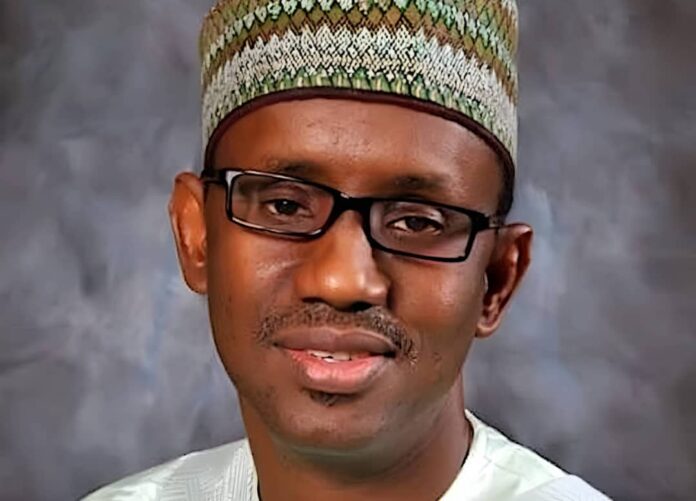In light of the glaring security challenges confronting the nation there is a dire need for holistic harmonisation of intelligence gathering, intelligence dissemination and intelligence co-ordination among the various security agencies tasked with this endeavour e.g. the Directorate of State Security (DSS), the National lntelligence Agency (NIA), the Directorate of Military lntelligence (DMI) and other allied agencies. This harmonisation process will ensure that intelligence that is required for operational, tactical and logistical purposes are given the priority they deserve and get to the end users in real time so that they can be acted upon promptly and decisively. The lack of harmonisation and co-ordination of intelligence gathering and dissemination has hindered the effective prosecution of the fight against terrorism, insurgency, kidnapping, banditry, separatism and militancy across the nation.
Thus the reform of Nigeria’s intelligence apparatus would improve public confidence, harmonise intelligence operations, and enhance the security agencies’ ability to detect, isolate, and degrade threats to public safety.
Going down memory lane, the military authorities passed the National Security Agencies Decree now Act in 1986 that established three intelligence services: the State Security Service (SSS) for domestic intelligence, the National Intelligence Agency (NIA) for foreign intelligence, and the Defence Intelligence Agency (DIA) for military intelligence activities within and outside the country.
The State Security Service which has morphed into the Department of State Services (DSS) is saddled with the responsibility of homeland intelligence operations and counterintelligence as well as the protection of sensitive installations, senior government officials, and visiting dignitaries. Other assignments include preventing and detecting crime and countering threats from terrorism, conflicts, and economic crimes of the national security dimension.
Over the past two decades, the nation’s intelligence services has faced fresh challenges that requires the adoption of new methods for intelligence assessment and tactical operations in response to threats such as those posed by Boko Haram, lslam State West Africa Province ( lSWAP), ethnic militias, economic saboteurs, separatists, cyber criminals and advance fee fraudsters.
The existence of these hydra-headed security challenges led to investments in non-kinetic and kinetic capabilities for counterterrorism activities including intelligence gathering, digital forensic investigations, as well as independent and joint targeted raids with the military to arrest terror suspects, neutralise cells, and promote disengagement.
The investment in technology products for intelligence monitoring, collection, and processing has become one of the pivotal tools for counterterrorism assessment operations alongside the traditional gathering of information through human assets ( humint). However, there are still observable gaps in ground and airborne capabilities for signal (SIGINT) and geospatial intelligence (GEOINT) to gain crucial tactical and strategic advantages against insurgent groups. This is in addition to shortcomings in the processing of available intelligence.
The gaps in intelligence gathering and dissemination is evident in the absence of robust predictive modelling for identifying security challenges and the heavy reliance on the armed forces for operations against threats that ideally should be managed by intelligence-led law enforcement without creating situations for escalation. The persistent use of the military for internal security has had unintended consequences including continuous military involvement in areas in the Niger Delta, Northeast, Northwest, North-central, and the Southeast regions of the country.
The tendency to employ a hard approach through the military to suppress protest or conflict could be traced to military era habits and the composition of the top security management team, including the tradition of appointing former military officers as National Security Advisers (NSA) to the President. The NSA is a principal staff officer responsible for making sure the president has the best intelligence to make decisions on national security. However with the appointment of Mallam Nuhu Ribadu, DIG (rtd) by President Ahmed Bola Tinubu to head the NSA, the agenda will likely shift from a military style approach to a more systematic regime that relies more on intelligence gathering than the heavy handed approach that tend to even inflame feelings and underlying resentment for the authorities. Since taking office in June 2023, Mallam Nuhu Ribadu has enthroned a refreshing atmosphere of inter-agency cooperation, co-ordination and cohesiveness, which is a striking departure from the inter-agency rivalries and undue competition that existed in the past. Regular meetings, briefings and brainstorming sessions are constantly convened involving all heads of the relevant security and intelligence formations with the sole aim of harmonising available data, info and intel needed to defeat the criminal and terrorist networks within and even outside our shores. A purposeful Mallam Ribadu has emphasized that the urgent task at hand remains the decimation of criminal networks and their sponsors in order to restore security, stability and tranquility nationwide; any other agenda is secondary. And there are clear signs that this single minded focus and clarity of direction is achieving the desired results given the fact that all manner of terrorists, kidnappers, bandits and their dastardly collaborators are being neutralized and apprehended on a daily basis. The dramatic rescue of over 300 abducted Chibok girls also point to an overwhelming triumph of the newly adopted intelligence harmonisation desiderata of the amiable NSA supremo.
Thus the ongoing reforms of Nigeria’s intelligence community will strengthen participation in counterinsurgency operations and build a well- bonded system to effectively respond to today’s changing security scenario. It will also enhance the forecasting and prevention of security threats by influencing the decisions of policymakers at different levels of government. The ongoing recalibration of the nation’s intelligence apparatus will also allow the agencies to build capacity in response to the diverse security risks and intelligence gathering potentials related to cyberspace and the internet thus enabling them to provide lasting peace, security and stability and bring a definitive end to security threats, breaches and challenges across the nation once and for all. To God be the Glory.
HON ALIYU IBRAHIM GEBI, MEMBER OF THE HOUSE OF REPRESENTATIVES (2011 – 2015) WRITES FROM MAITAMA, ABUJA





